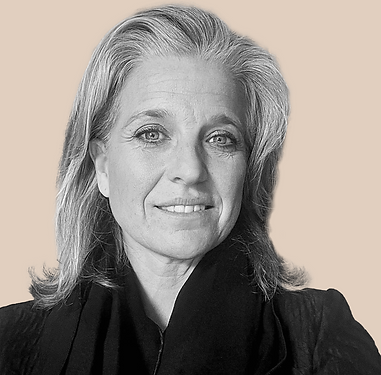
ADAPTING HISTORIC ENVIRONMENTS
Challenge # 03
Theme :
This challenge has been completed
Pick a HISTORIC BUILDING or ENVIRONMENT and communicate how it will be impacted by climate change and how it could be adapted to be made more resilient?
The winning, commended and shortlisted entries for Challenge #03 are showcased in our third compendium.
The video below shows the winning and commended entries from the third CLIMATE CREATIVES CHALLENGE. View the compendium above to see the in more detail.
What is it?
The CLIMATE CREATIVES CHALLENGE is a global initiative serving as a catalyst for innovation in climate communication. This international design competition, supports new and novel approaches for communicating the impacts of climate change and the benefits of mitigation, adaptation and resilience.
Prizes
*Prizes are in British Pound Sterling (GBP)
1st place £1,000
2nd place £750
3rd place £500
+
20 x Commendations of £250
Who could enter ?
The challenge was free to enter and open to people of all disciplines and creative backgrounds, including;
DESIGNERS
FILMMAKERS
ARCHITECTS
PROGRAMMERS
ENGINEERS
MUSICIANS
WRITERS
SCULPTORS
ILLUSTRATORS
STORYTELLERS
SCIENTISTS
HISTORIANS
DATA VISUALISERS
GEOGRAPHERS
SOCIAL SCIENTISTS
ENVIRONMENTALISTS
+ anyone with a creative concept that can help communicate this theme. They did not have to be a professional or in a team*
* You could enter as a team if you so wish. There was space in the submission process to input details of all collaborators
Formats
To encourage different types of creative communication, we accepted a broad range of types of entry submission, including;
Illustrations
Poetry & Prose
Photos
Audio
Video
Sculpture
Timings
Entry is now closed and judging has been completed
Winning entries have been announced
Challenge #03
Pick a HISTORIC BUILDING or ENVIRONMENT and communicate how it will be impacted by climate change and how it could be adapted to be made more resilient?
The judges were looking for entrants to;
- Explore ways for communicating the topic that go beyond the traditional bounds / formats in which it's typically represented.
- Share 'place' based narratives that link to / showcase contextual stories and experiences.
- Consider how your entry to the challenge could connect with people and/or organisations that aren’t necessarily aware or engaged with this topic.
- Not just focus on the hazard, but also show actions that can be taken for adaptation and to change the consequences endured.
The
Judges

CARL
ELEFANTE
Principal Emeritus, Quinn Evans Architects
Buildings & Infrastructure Issues Lead, Climate Heritage Network
Senior Fellow, Architecture 2030
Senior Research Associate, University of Notre Dame
Specialisms include;
Architecture, Historic Preservation, Urban Revitalization, Building Sector Climate Action
Carl Elefante is Principal Emeritus with Quinn Evans where he served as Director of Sustainability and design principal for architecture, historic preservation, and community revitalization projects. Known for coining the phrase: “The greenest building is one that is already built”, Carl writes and lectures internationally on historic preservation, sustainable design, climate change, and urban topics. Since serving as President of the American Institute of Architects (AIA) in 2018, Carl has focused on climate change, serving as Senior Fellow with Architecture 2030 and the Buildings & Infrastructure Issues Lead for the Climate Heritage Network (CHN). Carl’s recent academic appointments include serving as Adjunct Professor at The Catholic University of America, Paul H. Kea Distinguished Professor at the University of Maryland, and Senior Research Associate with the Michael Christopher Duda Center at the University of Notre Dame. Carl is a member of the College of Fellows in both AIA and the Association for Preservation Technology International (APT).
DR WITIYA
PITTUNGNAPOO
Lecturer (Associate Professor)
Faculty of Architecture, Art and Design, Naresuan University
PI of the Global Partnership Project on Climate Change Adaptation Strategies for Cultural Heritage Preservation
Specialisms include;
Flooding adaptation, cultural heritage management, creative city development
Witiya Pittungnapoo is an Associate Professor in the Faculty of Architecture, Art and Design, Naresuan University in Thailand. She completed her Ph.D. in town and regional planning from the University of Sheffield in 2009. Witiya has contributed her knowledge and planning skills across multi-disciplines to build-up international research collaboration on climate adaptation to preserve cultural heritage for achieving resilience and sustainability. She is a founder of the Climate Change Adaptation for Cultural Heritage Preservation (CCACHP) Research Unit (2021) at Naresuan University which aims to push climate change policy into the cultural heritage sector in the Lower Northern Region of Thailand.


MORWENNA
SLADE
Head of Historic Building Climate Change Adaptation,
Historic England
Specialisms include;
Conservation and Restoration, Climate Change Adaptation,
Energy Efficiency,
Morwenna Slade is a conservation-accredited building surveyor with a deep interest in both the natural and built environment. She has had experience managing historic estates for both the Churches Conservation Trust and the National Trust before starting her role at Historic England where she manages a multi-disciplinary team focused on adaptation in the built environment. Morwenna is also on the IHBC Technical panel, is an external examiner for Kingston University and an acting SPAB Guardian.
DR PAWAS
BISHT
Senior Lecturer in Media; Deputy Director,
Institute for Sustainable Futures, Keele University
Specialisms include;
Environmental Communication, Documentary Filmmaking, Cultural Memory & Heritage
Dr Pawas Bisht is a Senior Lecturer in Media and Deputy Director of the Institute for Sustainable Futures at Keele University. His current research focuses on participatory and co-creative approaches towards environmental communication; he currently leads, the British Academy funded ‘Storytelling for Environmental Change’ tackling air pollution in India. Pawas is also an experienced documentary filmmaker. His films have been shown on Channel 4, CNBC, and Doordarshan (India’s national public service broadcaster) and include work commissioned by the United Nations Development Programme and the Global Environment Facility.


ALEXANDRA DI VALMARANA
Building Structures Conservator
Specialisms include;
Sustainability, Material Science, Heritage Design, and Social Enterprise
Alexandra is a consultant and former partner at Peregrine Bryant Architects, with 20 years of experience in sustainable heritage and conservation design. She has led projects such as the Royal Astronomical Society, the Royal Hospital Chelsea, the Pioneer Health Centre, St Helen's and St. Katharine's School, the Travellers Club and Belmont House. Projects include award-winning Grade I and II private houses, UNESCO World Heritage sites, the Landmark Trust, National Trust and the Crown Estate. Her international work is focused in Italy, the USA and the Caribbean working with charities, museums, Port Authorities, Consuls General, and High Commissions. Alexandra serves on the boards of the University of Virginia Architecture School Foundation, The Gloria and Marco Award, Falmouth Heritage Renewal and the Centre for Palladian Studies in America.
LARA
RICOTE
Comedian/Storyteller
Specialisms include;
Bachelor in Political Science, Teaching Stand Up Comedy, Teaching Improvisation
Lara Ricote is a Mexican-American-Venezuelan stand up comedian who has won the Best Newcomer Award at the Edinburgh Fringe Festival 2022 for her critically acclaimed show GRL/LATNX/DEF and won the Funny Stage Women Award in London in 2021. She’s based in Amsterdam, NL. She’s made two shows that touch on the climate crisis, her stand up hour and her show she’s made with her partner “Training for the End of the World '' which is a mock-corporate training that deals with our not-so-slow descent into extinction.


ED
BARSLEY
Environmental Designer, Author and Illustrator
Specialisms include;
Environmental Architecture, Illustration, Resilient Design, Risk Communication, Filmmaking
Ed Barsley runs ‘The Environmental Design Studio’ (TEDS) and is an environmental designer, author, illustrator and filmmaker. In January 2020, Ed's book ‘Retrofitting for Flood Resilience’ was published by the RIBA and features many of his original artworks illustrating the impacts of climate change of the built and natural environment and benefits of adaptation / resilience. He is fellow of the RSA and is leading the design of the 'Hydroscape', a large scale living-lab to test and showcase strategies for resilience in the built / natural environment. He led the creation of both the Climate Creatives Challenge and the Hazard + Hope initiative to foster innovation and increase impact in climate change communication. Ed is currently running the PFR Outliers study which is researching ways in which historic buildings can be made more climate resilient.
PROFESSOR HENRIK
SCHOENEFELDT
Professor of Sustainability in Architectural Heritage, University of Kent
Specialisms include;
Environmental Design, Architectural History,
Architectural Education
Professor Schoenefeldt has trained as an architect and specialised in environmental design with an MPhil and PhD from the University of Cambridge. His main research interest is in historic principles of environmental design, both as field of scholar research and architectural practice. Since 2016 he has been seconded to the Houses of Parliament to lead a large research project on sustainable environmental design in heritage building. His research has been widely published, which includes the monograph ‘Rebuilding the Houses of Parliament, David Boswell Reid and Disruptive Environmentalism’, published with Routledge in 2021.

Supported by
This challenge is supported by;
Historic England is the public body that helps people care for, enjoy and celebrate England’s spectacular historic environment, from beaches and battlefields to parks and pie shops. We protect, champion and save the places that define who we are and where we’ve come from as a nation. We care passionately about the stories they tell, the ideas they represent and the people who live, work and play among them. Working with communities and specialists we share our passion, knowledge and skills to inspire interest, care and conservation, so everyone can keep enjoying and looking after the history that surrounds us all.
TEDS are an award-winning social venture whose aim is to reduce the exposure and vulnerability of communities and environments to natural / human induced hazards (particularly those resulting from or exacerbated by climate change). Their work in this field is facilitated and undertaken through design, research and training initiatives which highlights the causes/consequences of hazards and showcases strategies for adaptation and resilience to these threats.
Technical Requirements
Entrants could only choose one 'type' of format to use (i.e. can't submit a photo, poem and painting) ;
They had to have the appropriate ownership rights and permissions for any content featured / submitted as part of the challenge.
Illustrations
Photos
Video
Audio
Poetry & Prose
Sculpture
Eligible Approaches
This could be a sketch, painting, visualisation/render,
infographic or other type of illustration.
You might have captured a picture that conveys the aim of the challenge
It could be a short film or animation
It may be a song or sound you've written / recorded
It could be a poem or experience you want to share
It may be you've made a sculpture or model
Specifications
Max. 3 files submitted
Min. resolution
200dpi.
Min. image dimensions 120 x 120mm
Max duration 4 minutes
Max track
duration 4 mins
500 word limit
Video ratios:
21:9 / 16:9 / 1:1 / 4:3 / 9:16
File Formats
png, jpeg,
jpg, ai, pdf,
mov, mp4,
mpeg, avi,
mpeg4,
wmv, mp3
wma
pdf, doc,
docx, csv,
Physical objects will need to be photographed and comply with the requirements for that format.







